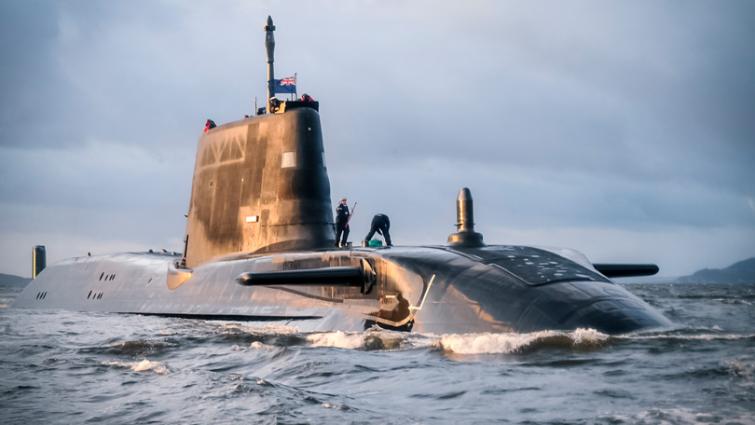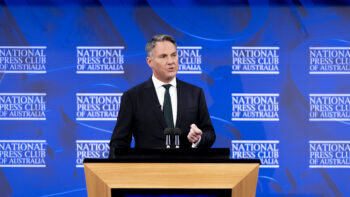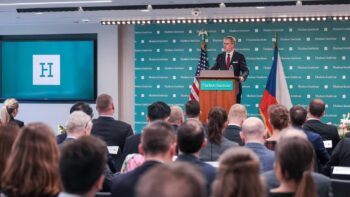
Astute class nuclear powered attack submarine Credit: Royal Navy
SYDNEY: The first detailed glimpse into the controversial AUKUS nuclear attack submarine deal between Australia, the United Kingdom and the United States would be be offered “shortly,” President Biden’s top man on China, Kurt Campbell, said.
“I think we’ve made, behind the scenes, quietly remarkable progress in areas associated with technology where not only the three countries (Australia, the UK and the US) are deeply engaged, but other partners are also supporting working groups,” Campbell said in remarks at the Center for a New American Security in Washington d. “And we will have more to say shortly with regard to the submarine initiative, and I just want to underscore that, as we see a new government coming, finding its legs in Australia, the partnership on AUKUS could not be stronger.”
In a sign of just how important the Indo-Pacific is to the Biden administration, Campbell said they plan “to step up our game substantially in the Pacific. This is an area of enormous strategic importance. We have historical and moral responsibilities. Both from the Second World War and subsequent the nuclear age.”
The US effectively took over a range of Pacific territories after World War II. And, of course, nuclear tests were carried out in the Marshall Islands, destroying at least four islands and depositing long-lasting nuclear fallout on Bikini and Eniewetok. Nuclear waste and contaminated material were stored under what’s known as the Runit Island dome.
While he offered no details, Campbell said the US also will launch a new effort next week to help the Pacific islands, which have come into such sharp relief recently with the secret security pact signed between the Solomon Islands and China. Also, China’s foreign minister toured the islands for the first time and tried to push through a regional trade and security agreement. It was not adopted by the nations he visited, which included Samoa, Tonga, Kiribati, Papua New Guinea, Vanuatu, Solomon Islands, Niue and Vanuatu, but the effort was a klaxon warning to US and Australian officials.
“We are trying to meet the Pacific where they live, and I’m gratified to say not only are we doing this on a bilateral basis, but we will be launching next week an initiative to work with a variety of like minded countries on an open, very detailed set of engagements in which we share our views work closely with partners from the Pacific Island Forum to ensure that like-minded countries like Australia, New Zealand, Japan, the United States, Great Britain, France and others, are able to make clear our desire to keep a Pacific environment that’s open that’s healthy, that’s productive and free from coercion,” Campbell said.
He pointed to “maritime domain awareness, unexploded ordinance, climate change, illegal fishing, all the things that matter in the Pacific” as areas the administration is focusing on.
Asked if the US has sufficiently funded its pivot to the Pacific, he acknowledged that was “a valid criticism.” He added that “what you will also see is specific initiatives to build more embassies where we don’t have any in the Pacific,” as well as “more coast guard initiatives” and “more money for things like the tuna treaty.”
Finding new money not just for weapons but for USAID and other efforts is “appropriate and necessary,” Campbell said. But it’s going to be hard.
“But over time, one of the hardest things in government is to make choices among existing, you know, priorities and regions. And that’s very difficult,” he said. Campbell pointed to high demand around the world for American leadership and engagement. At a time of what he called “economic uncertainty,” it may be even harder.






















